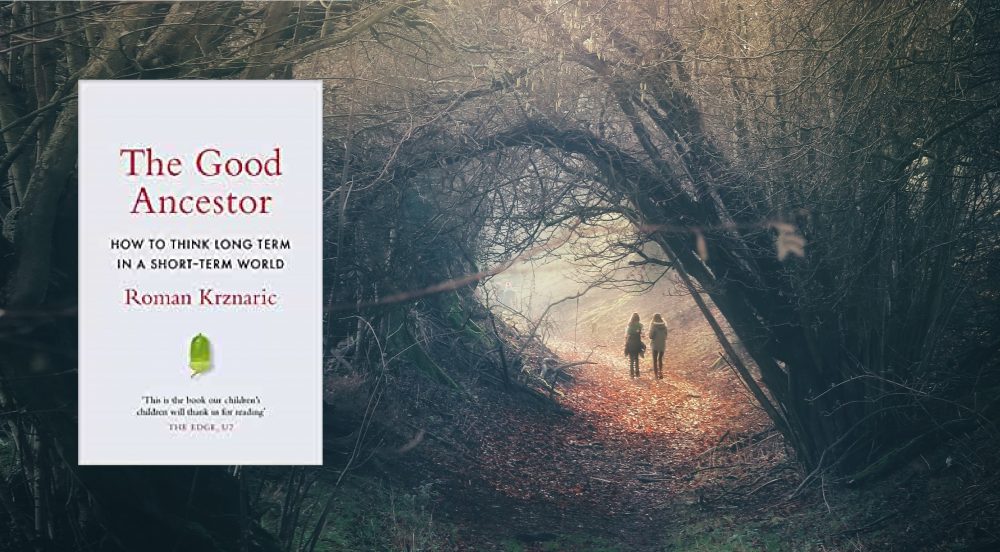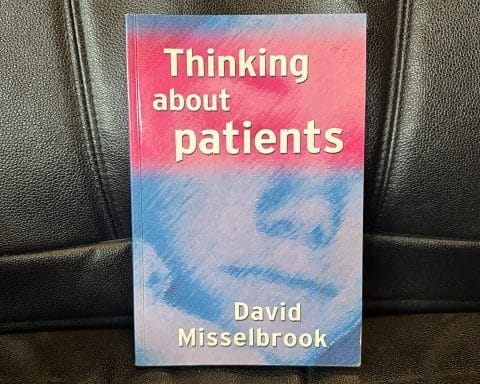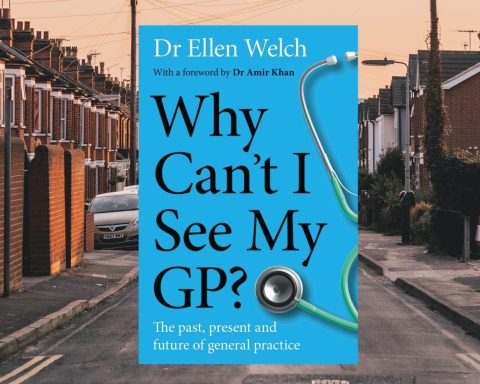
“Daddy, what did you do during the Anthropocene?”
Like many parents, I often worry about the world my son, now eight years old, will grow up in. Will liberal, pluralist democracies continue to wither around the globe, to be replaced by populist authoritarian regimes? Will automation replace many professions he might want to enter? What about rogue artificial intelligence or out-of-control nanotechnology or bioterrorism? And topping the list, will unchecked climate change, and the ecological devastation and loss of biodiversity it will create, threaten our very existence?
Addressing these threats requires long-term thinking, planning and preparation. The problem, as Roman Krznaric argues in The Good Ancestor, is that so much of our culture – from our throwaway, instant-gratification consumer habits to the our political and economic institutions – is dominated by our short-term psychology. Krznaric argues that it needn’t be so, and offers a road map for nurturing the long-termism we need to ensure that we leave behind a world in which not just our children, but our children’s children and beyond, can flourish. If we fail to heed this call, there’s a real risk that we’ll leave them a world in which they won’t even survive.
A road map for nurturing the long-termism we need to … leave behind a world in which … our children’s children and beyond can flourish.
To get us orientated to the future, Krznaric lays out six tools for nurturing long-term thinking, each presented in an easily digestible chapter written in pellucid prose. The tools come in pairs, two focused on extending our temporal imaginations, two on caring more deeply about future generations, and a pair for planning more wisely for them.
The caring tools, designed to increase the scope of our ethical vision, are absolutely central to this whole project. We don’t own the future, and won’t have to suffer whatever it brings, yet we selfishly colonise it with the consequences of our short-term decisions today. Promoting greater intergenerational justice, guided by the transcendent goal of creating a world in which the needs of future generations can be met with the resources on our finite planet – ‘one-planet thriving’ – should be a major goal of anyone aspiring to become a good ancestor. If people just don’t care, we’re doomed.
We don’t own the future … yet we selfishly colonise it with the consequences of our short-term decisions today.
Given the paralysing despair future gazing can induce, The Good Ancestor is a surprisingly uplifting book. Krznaric is no starry-eyed optimist, and nor does he complacently believe that science and technology will save us from ourselves – indeed, in some cases, these are the source of future concerns. But he is hopeful that we can fix our mistakes, and map out a more sustainable future for the generations to come.
This hope, which I absorbed osmotically as I read the book, is driven not only by many cases of successful long-term planning – from the building of cathedrals over decades and the eradication of smallpox to the creation of seedbanks to preserve the world’s flora – but also by a host of activist movements, community initiatives and policy innovations that deploying long-term thinking on the ground right now. These ‘time rebels’ include high-profile cases like Greta Thunberg and Extinction Rebellion raising consciousness about climate change, but Krznaric tells the stories of many more focused on our political and economic systems that were, for the most part, new to this reader.
Krznaric argues, convincingly, that the representative democracy, with its short-term election cycles and policy promises, is ill-suited to fixing, our better pre-empting, long-term problems. The answer is not more authoritarianism, which he shows is even worse for the long-term health of societies, but establishing new roles, bodies and institutions in our democratic structures. One strategy, adopted by many governments, is to create ‘guardian of the futures’. A prominent example is the Future Generations commissioner for Wales, set up under the Well-Being for Future Generations Act in 2012. Although this role does not come with the power to strike down or enact policies, it is an important step in getting long-term concerns into the political and public conversation.
We can fix our mistakes, and map out a more sustainable future for the generations to come.
In the economic realm, Krznaric brings together many examples of new ways of doing business that could ameliorate short-term economic incentives, and are better suited to one-planet thriving. These include taxing stock trades based on how long they are held, abolishing quarterly reporting, and decoupling CEO bonuses from short term performance, but also more ambitious ideas such as creating ‘circular economies’ in which waste generated by one kind of activity is used as the input for another, an approach that is already gaining traction in countries from Canada to China.
The Good Ancestor is an excellent book, full of fascinating stories and compelling arguments. But I worry that it might mainly be read by people already disposed to long-term thinking. So if you buy a copy for yourself, think about getting another for someone who might not be so inclined. Future generations may thank you.
Featured book
The Good Ancestor: How to think long term in a short term world. Roman Krznaric. London: WH Allen, 2020, 323pp.
Featured photo by George Hiles on Unsplash








